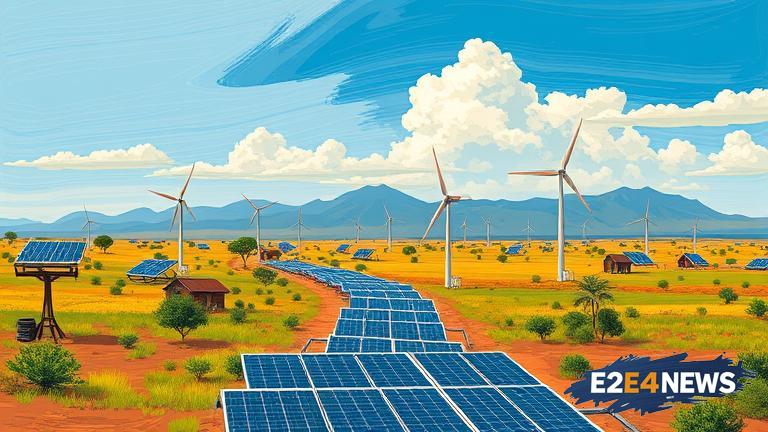The African continent is witnessing a significant shift towards renewable energy, driven by the need to address the pressing issues of energy access, climate change, and sustainable development. With a growing population and increasing economic activities, the demand for energy is on the rise, and renewable energy sources such as solar, wind, and hydroelectric power are becoming increasingly attractive. Many African countries are now investing heavily in renewable energy infrastructure, with a focus on solar and wind power. For instance, South Africa has set a target of generating 42% of its electricity from renewable sources by 2030, while Morocco aims to increase its renewable energy capacity to 52% by 2030. Egypt, on the other hand, has launched several large-scale renewable energy projects, including the Benban solar park, which is one of the largest solar parks in the world. The African Union has also launched the African Renewable Energy Initiative, which aims to achieve at least 300 GW of renewable energy capacity by 2030. The initiative has received significant support from international organizations and donors, including the European Union and the African Development Bank. The growth of renewable energy in Africa is also driven by the declining cost of technology, making it more competitive with fossil fuels. Additionally, the use of renewable energy can help reduce greenhouse gas emissions and mitigate the impacts of climate change, which are particularly severe in Africa. The continent is also home to significant natural resources, including solar and wind resources, which can be harnessed to generate clean energy. Furthermore, the development of renewable energy can create jobs and stimulate local economies, contributing to sustainable development and poverty reduction. However, despite the progress made, there are still significant challenges to be addressed, including the lack of infrastructure, financing, and regulatory frameworks. The African continent also needs to develop its energy storage capacity to ensure a stable and reliable supply of renewable energy. Moreover, the integration of renewable energy into the grid requires significant investment in transmission and distribution infrastructure. The private sector also has a critical role to play in the development of renewable energy in Africa, and several companies are already investing in large-scale renewable energy projects. International cooperation and knowledge sharing are also essential to support the growth of renewable energy in Africa. The use of renewable energy can also improve energy access, particularly in rural areas, where many communities lack access to modern energy services. In addition, renewable energy can help reduce energy poverty, which is a significant challenge in many African countries. The development of renewable energy can also contribute to the achievement of the Sustainable Development Goals (SDGs), particularly SDG 7, which aims to ensure access to affordable, reliable, and modern energy for all. Overall, the growth of renewable energy in Africa is a positive trend, and with the right policies, investments, and international cooperation, the continent can achieve its renewable energy targets and contribute to a more sustainable and climate-resilient future.
